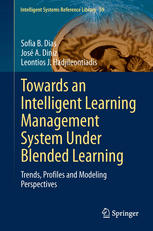

Most ebook files are in PDF format, so you can easily read them using various software such as Foxit Reader or directly on the Google Chrome browser.
Some ebook files are released by publishers in other formats such as .awz, .mobi, .epub, .fb2, etc. You may need to install specific software to read these formats on mobile/PC, such as Calibre.
Please read the tutorial at this link: https://ebookbell.com/faq
We offer FREE conversion to the popular formats you request; however, this may take some time. Therefore, right after payment, please email us, and we will try to provide the service as quickly as possible.
For some exceptional file formats or broken links (if any), please refrain from opening any disputes. Instead, email us first, and we will try to assist within a maximum of 6 hours.
EbookBell Team

4.7
66 reviewsWhat are the key channels to change in blended instructional practice as they relate to the use of a learning management system (LMS)? What role LMS users’ profiles play in facilitating change in practice? Can we model users’ quality of interaction (QoI) with LMS? How inclusiveness and affectiveness could lead to a personalized intelligent LMS (iLMS)? If these questions sound intrinsic to you and to your own experience and circumstance, then this book fits absolutely to you.
Here, the term Blended – viewed as a fuzzy concept – is understood as a stepping-stone on the way to the future, to explain the multiple ways human beings think/act/feel of society in the 21st century and to embrace the opportunity of humans to re/co-construct new knowledge through the intermediation role of the technology. Initially, based on an online learning environment’ theoretical framework, some current issues of the educational processes in the digital age of Web 2.0 are analyzed. Then, after exploring the main methodological procedures, characteristic examples of research case studies follow, including LMS users’ trends and profiles and modeling of their QoI using fuzzy logic.
This book offers useful information that evokes initiatives towards rethinking of the value, efficiency, inclusiveness, affectiveness and personalization of the iLMS-based b-learning environment, both by the educators, the LMS designers and educational policy decision makers.